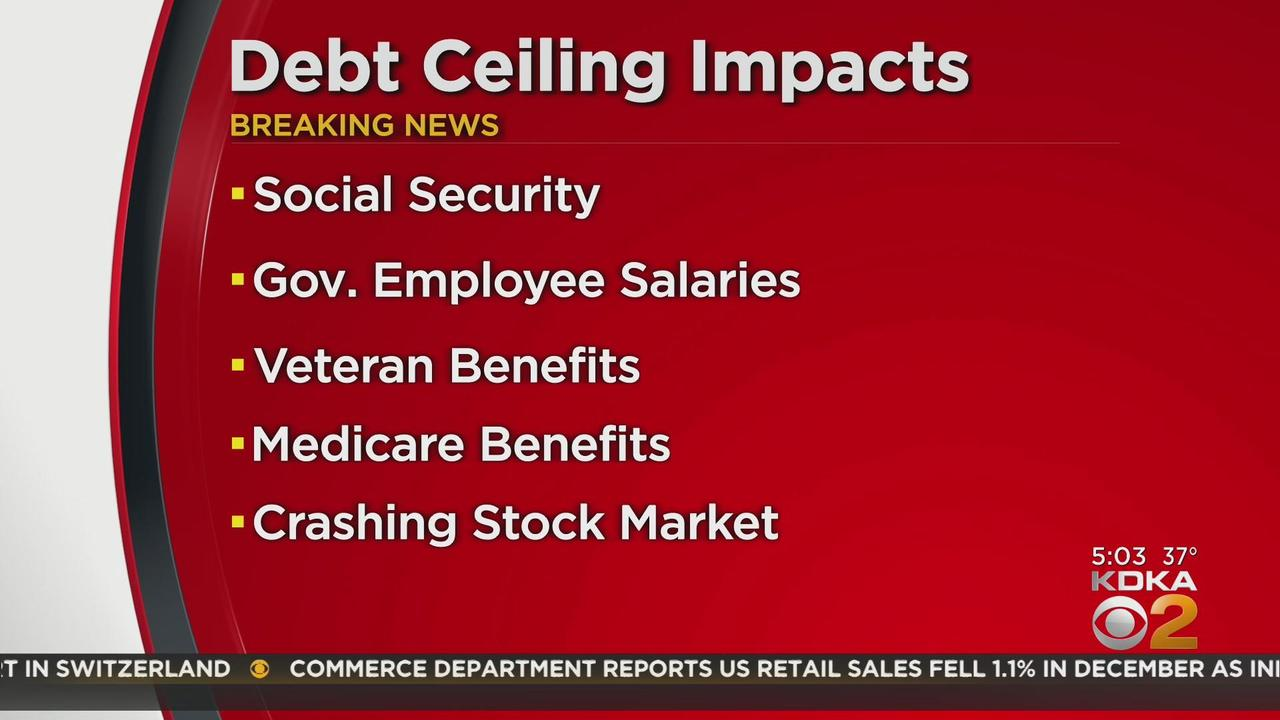|
|
Biden and House GOP are at an Impasse as Nation Hits Key Debt Ceiling Deadline |
|
The Biden administration and House Republicans passed an initial January 19 debt ceiling deadline this week without a plan for resolution, ensuring a long standoff that’s likely to rattle financial markets amid worries about a recession. However, for things to move forward, Republicans need to agree among themselves on what to ask for in exchange for raising the ceiling.
The nation hit the $31.4 trillion debt limit set by Congress on Thursday, forcing the Treasury Department to start taking extraordinary measures to keep the government paying its bills and escalating pressure on Capitol Hill to avoid a cataclysmic default. Because Thursday was not a hard deadline, the department can still use “extraordinary measures” to pay the bills for another few months. |
|
|
Many ultra-conservative House Freedom Caucus members demanded that House Speaker Kevin McCarthy not raise the debt ceiling unless President Biden and Democrats agree to their demands to slash Social Security, Medicare, and other spending. In 2011, a standoff between the GOP and former President Obama over raising the debt ceiling led to a nose-dive in stock prices, spiking mortgage rates and a drop in consumer confidence.
In a speech this week, President Biden mocked Republicans for talking about “big-spendin’ Democrats,” when in fact the deficit dropped by roughly $350 billion in fiscal 2021 and more than $1 trillion in fiscal 2022 under his party’s control.
On Wednesday, Sen. Joe Manchin (WV) added to the drama when he said that he had spoken briefly with Speaker McCarthy about possible “compromise” with the House GOP. He suggested adding a bill he co-sponsored with Sen. Mitt Romney (UT) in the last Congress to create a “rescue committee” for the Social Security, Medicare and highway trust funds to legislation to raise the debt ceiling.
Sen. Romney first introduced rescue committee legislation in 2019 as a vehicle to pave the way for cuts to Social Security and Medicare by recommending changes to the Trust Funds in the name of “long-term solvency.” The TRUST Act called for the creation of committees to meet behind closed doors without public input, and for recommendations to then be fast tracked to the floor of the House and Senate for an up or down vote without amendments.
“It is time for us to fight back and defend the Social Security and Medicare benefits we’ve earned over a lifetime,” said Richard Fiesta, Executive Director of the Alliance. “This is the most serious threat to Social Security and Medicare we’ve seen in more than a decade and it will take dramatic and strong action between now and June to stop these dangerous ideas in their tracks.” |
|
Democrats in Michigan Unite to Roll Back Tax on Pension Benefits
|
|
Half a million retirees in Michigan could save an average of $1,000 per tax year under a Democratic-backed plan unveiled last week. Michigan Alliance President Jim Pedersen joined Governor Gretchen Whitmer at an event announcing the legislation.
The plan seeks to roll back a tax on certain retirement pensions and raise a tax credit for low- and moderate-income working families. A pair of retirement pension tax cut plans offered by the state House and Senate are identical and offer a tiered approach to relief. They would allow retired Michiganders born between 1945 and 1959 to deduct up to 25% of the maximum amount of retirement or pension benefits in the 2023 tax year.
Those deductions would jump to 50% for those born between 1945 and 1963 in the 2024 tax year, and then 75% in the 2025 tax year for those born between 1945 and 1967.
“Twelve years ago, Republican Governor Rick Snyder signed highly controversial legislation establishing a state retirement tax that applies a 4.25% income tax on pensions,” said Joseph Peters, Jr., Secretary-Treasurer of the Alliance. “The new legislation would roll back that tax. Michigan retirees strongly applaud this move to offer them much-needed financial relief.” |
|
Kaiser Health News: Numbers Don’t Lie. Biden Kept His Promise on Improving Obamacare. By Julie Appleby |
|
Promise: “I’ll not only restore Obamacare; I’ll build on it.”
In a speech on Nov. 2, 2020, then-presidential candidate Joe Biden promised, “I’ll not only restore Obamacare; I’ll build on it.”
Two years and counting since then, how is he doing in meeting that promise?
KHN has teamed up with our partners at PolitiFact to monitor 100 key promises — including this one — made by Biden during the 2020 presidential campaign. The pledges touch on issues related to improving the economy, responding to calls for racial justice, and combating climate change. On health care, they range from getting covid-19 under control and improving veterans’ health care to codifying Roe v. Wade. KHN has recently done progress checks on the administration’s pledges to lower the costs of prescription drugs and to reduce the nation’s maternal mortality rate.
Eight days into his tenure as president, Biden signed an executive order aimed at strengthening Medicaid and the Affordable Care Act, or Obamacare. A couple of months later, he signed his first major piece of legislation, the American Rescue Plan, which included provisions expanding eligibility for subsidies and increasing premium tax credits available to help low- and moderate-income Americans purchase ACA coverage.
Read more here. |
|
Alliance Celebrates the Lunar New Year this Sunday |
|
|
The Lunar New Year, an international holiday celebrated in many Asian countries, is this Sunday, January 22. It is sometimes called the Chinese New Year, because it follows a calendar that was developed in China, but it is also celebrated in other parts of Asia, including Korea and Vietnam. |
|
Unlike the western New Year's Day on January 1, the date of the Lunar New Year changes depending on the year. In most parts of East Asia, the new year that begins on January 22, 2023 corresponds to the rabbit. In Vietnam, January 22 will usher in the Year of the Cat instead.
“On this occasion the Alliance would like to recognize the Asian Pacific American community and the work of the Asian Pacific American Labor Alliance (APALA), which shares our vision of a society where economic and racial justice prevails and human rights and worker dignity are affirmed,” said Robert Roach, Jr., President of the Alliance. “Eastern cultures like China's adhere to the Confucian tradition of 'filial piety,' which prioritizes the family unit and values elders with the utmost respect. Our nation would be stronger if all Americans embraced those traditions.” |
|
Thanks for reading. Every day, we're fighting to lower prescription drug prices and protect retirees' earned benefits and health care. But we can't do it without your help. Please support our work by donating below. |
|
|
|
|
Alliance for Retired Americans | 815 16th Street, NW | Washington, DC 20006 | www.retiredamericans.org



